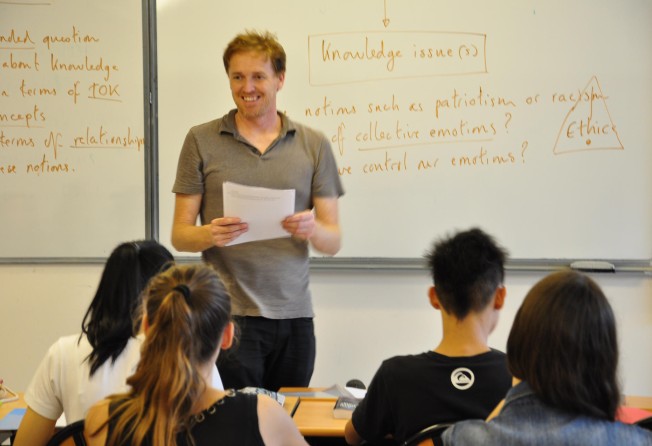Theory of knowledge improves critical thinking

"When I first found out I would be studying Theory of Knowledge (TOK) for the International Baccalaureate Diploma, I was intrigued and thought it would be interesting to explore a subject with no definite answers, like maths or chemistry," says Anna Smyth, who is completing her first year of the programme at the French International School (FIS).
But her classmate Sybil Yeung was apprehensive, as she wasn't sure what the subject would entail. "I also did not understand the need for the subject. As with most mandatory subjects, I felt like I was being forced to take it," she adds.
When I asked TOK teacher Phillipe Raoul from FIS how students perceive and feel about this subject, he admitted it was a difficult question to answer, despite having taught it for 12 years and having a background in the epistemology of history.
"It is difficult to judge change in student perception by the time they spend in the course [at least 100 hours over two years], because it depends on whether students have been exposed to these ideas before," says Raoul.
"Those who have not can find it challenging. Sometimes it can take them a long time to figure out exactly what is going on, because the study of TOK is not linked to student ability," Raoul adds. But he believes students do realise the intrinsic value of the ideas they are presented with when they go on to university.
"TOK did teach me to look at things more analytically, and that has helped me," says Pracheta Mehtaji, an ex-student of Raoul's who is currently studying medicine. "If it was not to be marked, I may have been more enthusiastic about it. It was ironic that the prejudice and apprehension I had about TOK taught me that one should not be biased,"
What do students study in TOK? This is a frequently asked question by students before they commence the IB diploma.
Student Nicholas Cheng says that it involves the study of the various ways of knowing, such as sense perception, emotion, reason, language, as well as learning the implications of knowledge issues in everyday life. "It allows me to see the world in a different light and evaluate the significance of my actions," he says.
Raoul says the study of TOK does more than offer students and their teachers the opportunity to reflect critically on diverse ways of knowing. They also learn the different areas of knowledge, like mathematics, natural sciences, human sciences, history, the arts and ethics.
Students also study the advantages and disadvantages of the ways which we learn of the world and our place in it. It gives students an opportunity to consider the role and nature of knowledge in their own culture, in the cultures of others, and in the wider world.
For autumn 2013, the International Baccalaureate Organisation has tweaked the TOK programme to include four other ways of knowing: intuition, imagination, faith, and memory. But teachers will still focus on six areas of knowledge and four ways of knowing.
The new TOK syllabus addresses Raoul's concern about the current assessment of the course, which does not always accurately reflect students' progress over the two-year programme.
"It is difficult to make a holistic judgment of student learning based on a final product: the essay and a presentation," he says.
"Encouraging students to make regular journal entries or maintaining a portfolio as students do in CAS [Creativity, Action, Service], another core component of the diploma programme, would better reflect student progress," he says.
From this autumn, students will be assessed by a global impression approach. This replaces the four distinct criteria that have been used to date: their perspective, organisation of ideas, quality of analysis of knowledge issues, and depth and breadth of understanding of knowledge issues.
Both Anna and Sybil now find TOK extremely useful, and believe that it has improved their critical thinking. But, as Anna says, "It is a pain to have to do it on top of all the other work we have to do for IB."
Anjali Hazari teaches IB and IGCSE biology at the French International School